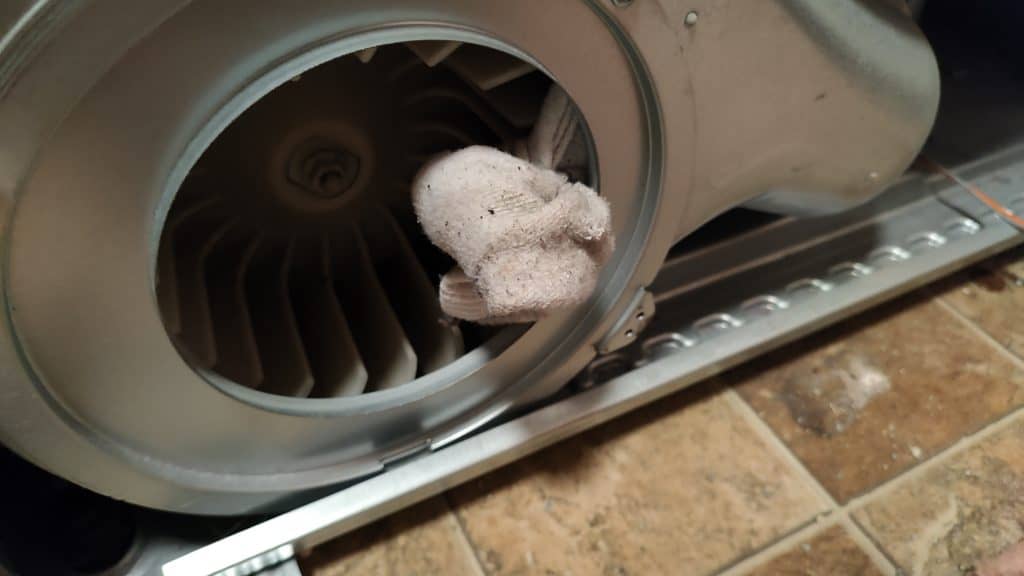Let me begin with something important. I am not writing this to advertise my own company. However, my perspective comes from running an appliance repair business, and that real-world experience shapes everything I am about to say. It is the only kind of experience I have.
Over the years I have seen the same situations repeat themselves. Someone “fixes” an appliance, and two weeks later the exact same problem returns, but the company is no longer reachable. Someone collects a deposit and disappears. Someone shows up, announces they do not work on that particular model, charges a service fee, and leaves. Unfortunately, these stories are not rare.
That is why I decided to step back for a moment and think like a regular homeowner. If I needed my own appliance repaired, how would I choose the right technician? What would actually matter?
Step 1. Decide what type of company you want
The first question is simple: do you prefer a large company or a local independent technician? Large companies usually have dispatchers, multiple technicians, and structured systems. You may speak to one person on the phone and see a different technician each visit. In many cases, these businesses focus heavily on selling additional services rather than concentrating solely on the repair itself.
A smaller local business often consists of one technician or a small team. Sometimes the owner answers the phone personally. That structure usually creates more direct accountability and personal communication. You know who you are dealing with.
There is one nuance worth mentioning. Today it is common for small operations to present themselves as large regional brands. The company name might sound impressive, but behind it there may be only two or three people. That is not necessarily bad. The real question is whether your washer, dryer, or refrigerator truly requires a large corporate structure with dozens of employees.
I once experienced something similar when I needed roof work done. I was simply looking for one honest roofer who could assess the damage and tell me what truly needed repair. Instead, I repeatedly encountered large companies arriving with inspectors, sales representatives, and lengthy presentations that always ended with a proposal to replace the entire roof for tens of thousands of dollars. What I needed was straightforward advice. Appliance repair is no different. You need a skilled technician, not a sales department.
Step 2. Where to look
Word of mouth. The most reliable source is always someone you trust. If a friend or neighbor had a good experience and can confidently recommend a technician, that is often the best starting point.
Social media. Nearly every company maintains some form of online presence. However, many pages are outdated or rarely monitored. Direct messages often go unanswered. Local community groups on Facebook or Nextdoor can sometimes provide helpful recommendations, but results vary.
Online directories. Many directories automatically collect and publish company information without the business even knowing. I have found my own company listed on sites where I never registered. A listing alone does not guarantee that the company actively manages that profile.
Lead generation platforms. Services such as Yelp, Angi, or Thumbtack operate on advertising models. Visibility often depends on how much a business pays rather than on craftsmanship or long-term reputation. It is important to understand how those systems work.
Google search. This remains the most common method. Searching for phrases like “refrigerator repair near me” will produce many results. Just remember that Google frequently prioritizes proximity and advertising over overall quality.
Step 3. What to look for in reviews
When reading reviews, I would look for balance and consistency rather than perfection. A company with only flawless five-star ratings and no criticism at all can raise questions, because no service business operates without occasional challenges. Volume also matters. A realistic number of reviews accumulated gradually over time makes more sense than an unusually high surge in a short period.
Pay attention to history. If a company claims decades of experience but online reviews only began recently, it is reasonable to ask why. Finally, read the tone. Authentic reviews tend to differ in detail and style. Artificial ones often sound overly polished and repetitive.
Step 4. Check licenses and insurance
Any legitimate company, even a single-person operation, should be able to provide proof of registration and insurance. Ideally this information is available on their website. If not, it should be provided upon request without hesitation.
Do not be distracted by decorative badges, framed certificates, or impressive slogans. What truly matters is verification. A valid UBI number allows you to confirm registration status, licensing, and business standing through state resources. Active business insurance ensures that any accidental damage is covered. Everything else is secondary.
- Certificate / License – View example here
- Business Insurance – View example here
Step 5. Evaluate scheduling and workload
After narrowing your options to a few companies, scheduling often reveals a lot. If the earliest appointment is several weeks away, consider what that means. Living without a refrigerator, washer, or dryer for an extended period is rarely practical.
Long wait times may indicate internal disorganization, or they may be used as a tactic to create urgency for premium “emergency” appointments. Either way, availability reflects how the company operates.
I once experienced this while searching for legal help. One attorney, well known and reputable, suggested leaving my documents and waiting until he had time. It was clear that my case was not a priority. Another lawyer met with me immediately, reviewed the situation, and handled it efficiently. The difference was not in advertising; it was in responsiveness. Appliance repair should feel the same way. Choose someone prepared to address your issue within a reasonable timeframe.
Step 6. First impressions when the technician arrives
First impressions are practical, not superficial. A clearly marked service van suggests stability and investment in the business. An unmarked vehicle does not automatically indicate a problem, but it may prompt questions about experience and structure.
Professional presentation matters because it signals accountability. When a technician puts their company name on their vehicle, they are publicly attaching their reputation to their work.
When the technician enters your home, observe briefly and then allow them space to work. Showing interest is natural, but hovering closely can slow the diagnostic process. A good technician will explain findings clearly once they have assessed the appliance.
Bottom line
The most dependable repair companies typically share several characteristics: consistent and realistic reviews, verifiable licensing and insurance, reasonable scheduling availability, and a straightforward approach to solving your problem. Above all, choose people who genuinely intend to help rather than simply appear busy.




